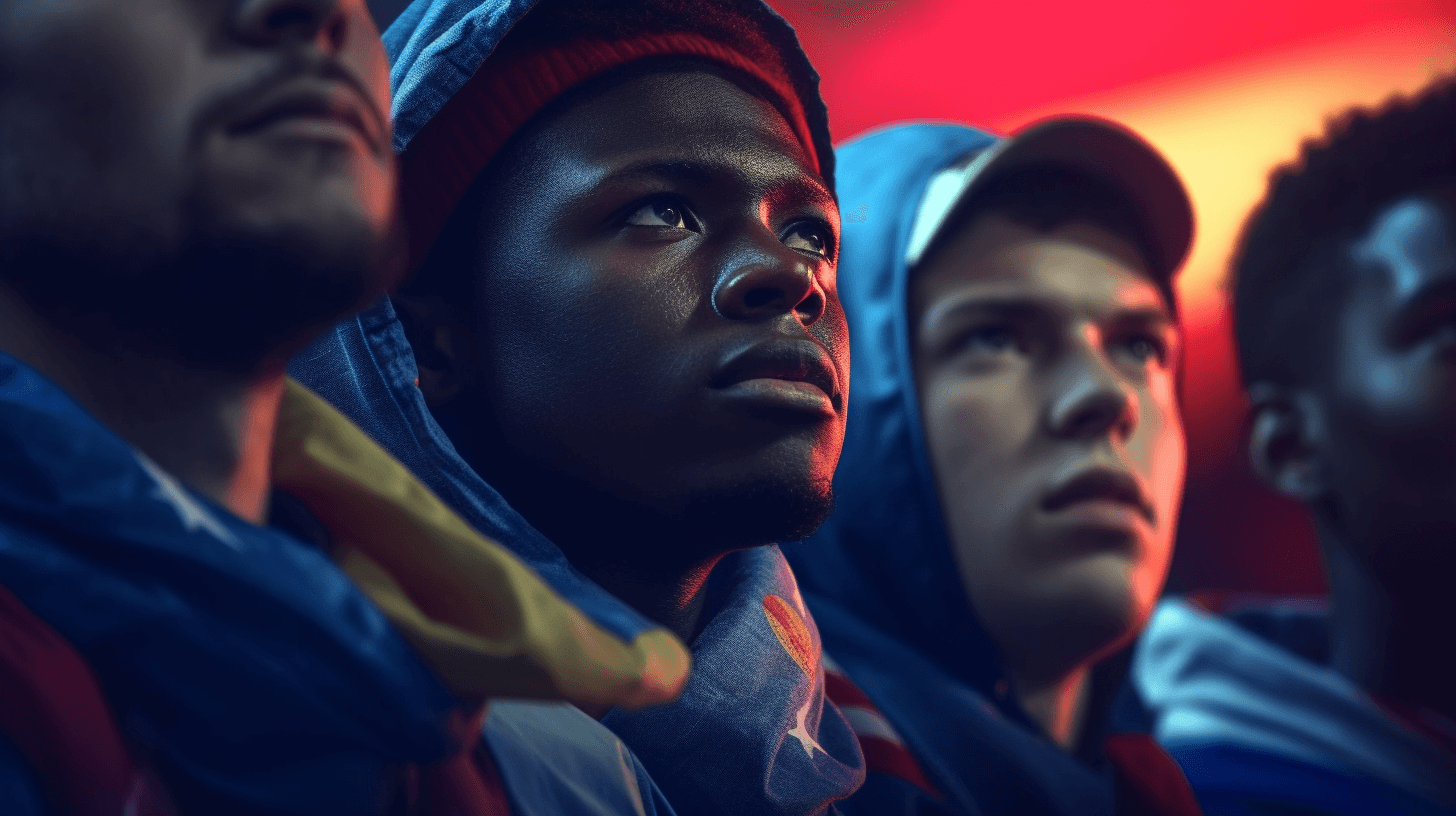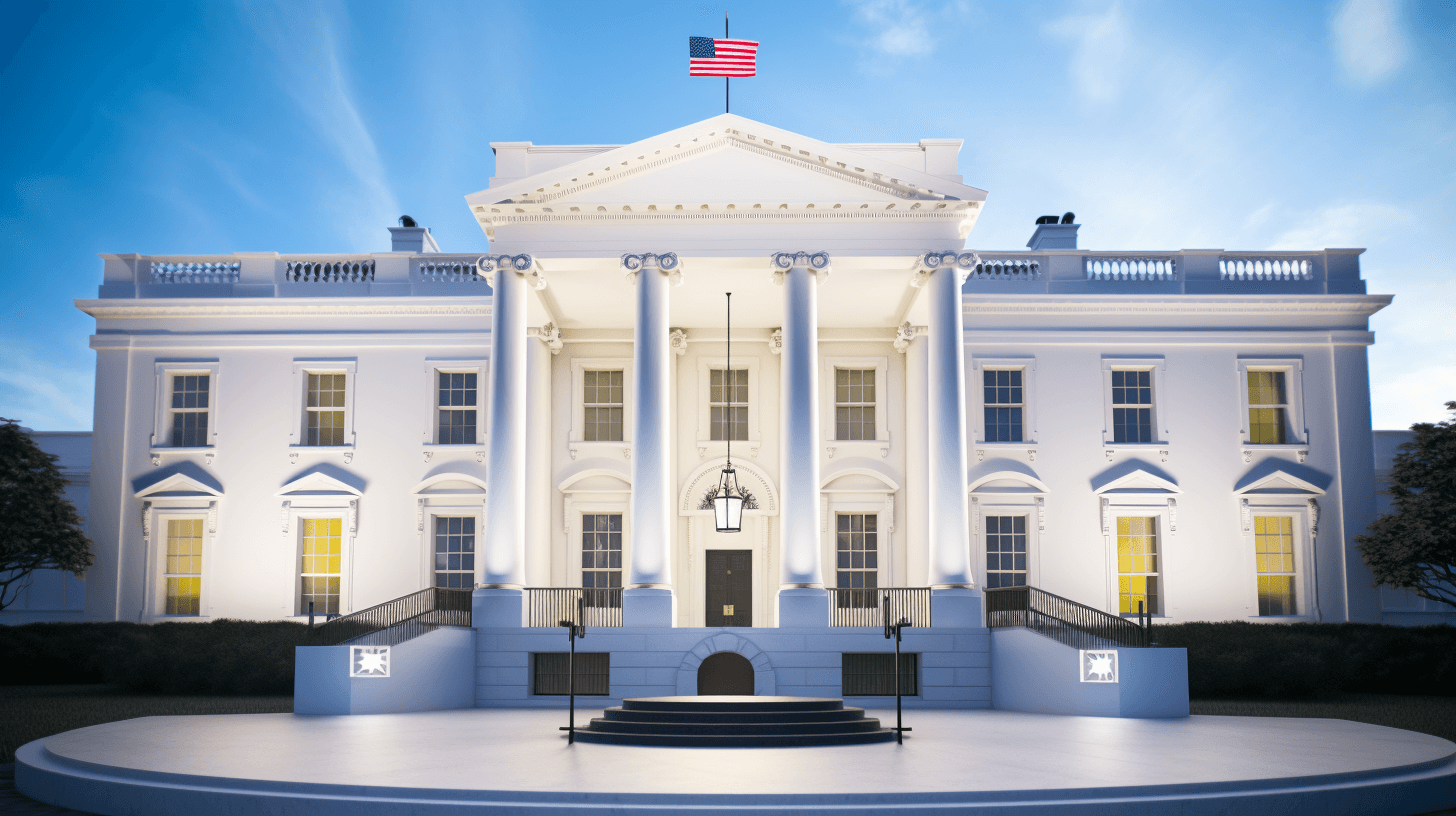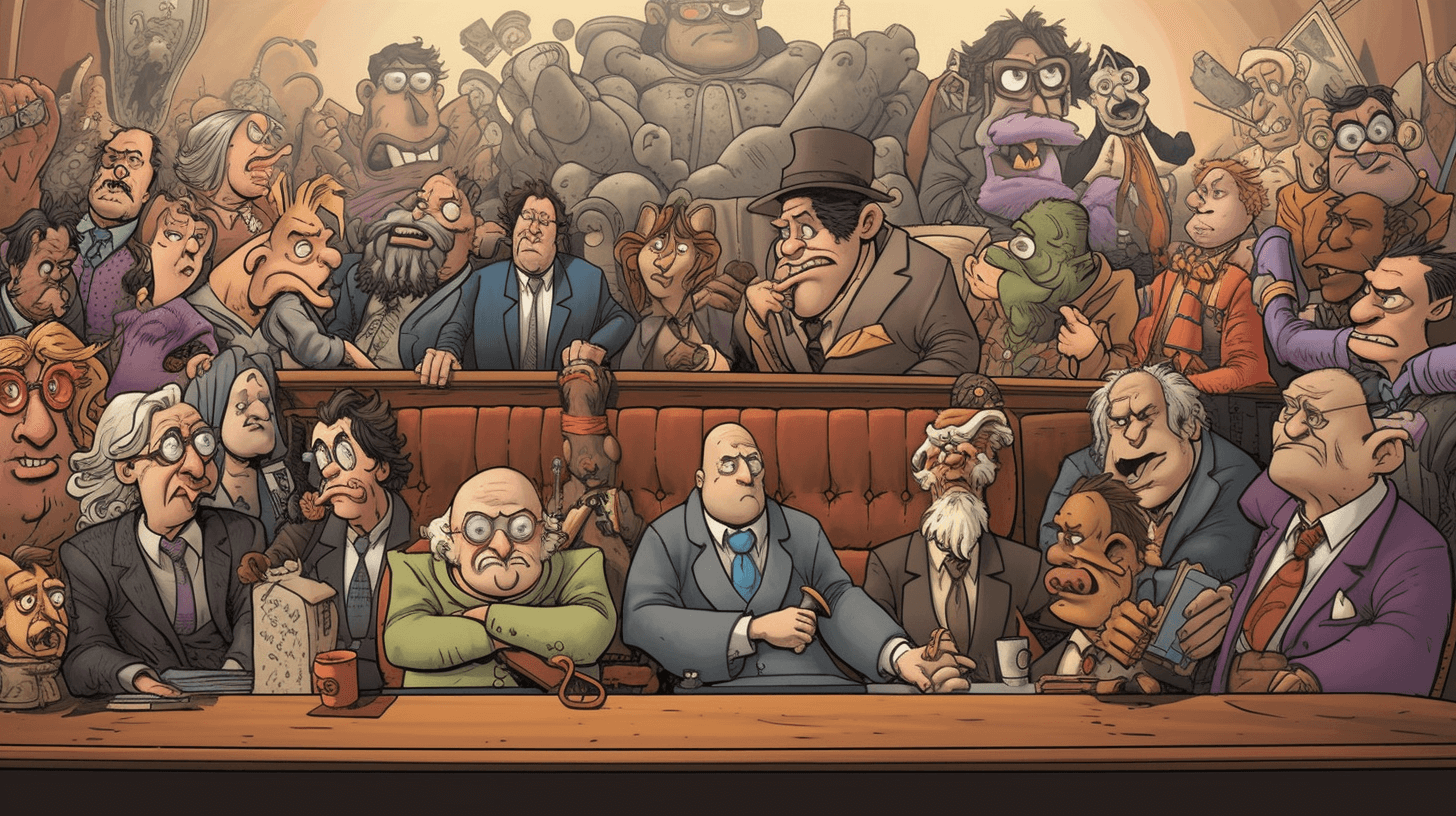🗣️🌈 Pilikia Big Kine fo’ G.O.P. Candidates of Color Wen Talkin’ Bout Racism
Presidential candidates Tim Scott and Nikki Haley share stories of discrimination due to their skin color, yet they assert that systemic racism does not exist in America. 🤔 Their descriptions, however, often resemble examples of such racism.
Senator Tim Scott of South Carolina launched his presidential campaign recounting America’s bitter, racist past. He often shares the story of his grandfather who had to abandon school in the third grade to pick cotton in the Jim Crow South. 🏫👴😔
Nikki Haley, another Republican nomination contender, recalls the loneliness and isolation she felt growing up in a small-town South Carolina as the child of immigrants, and the only Indian family in town. 🌳👨👩👧👦🕌 Conservative commentator and long-shot presidential candidate Larry Elder recounts to predominantly white audiences the tale of his father, a Pullman porter in the segregated South, who always carried canned fish and crackers, as he never knew if he’d get a meal. 🚂🥫🍪
These personal narratives remind us of how far they’ve come to rise to the heights of national politics, running for president. But their bootstrap narratives often exhibit contradictions. They deny the existence of systemic racism in America, yet describe situations that imply its presence. 🧐
In a recent campaign ad running in Iowa, Scott asserts, “I’m living proof that America is the land of opportunity and not a land of oppression,” despite discussing his grandfather’s forced illiteracy and his own experiences of being stopped by the police seven times in a single year for “driving a new car.” 🚔👮♂️ These diverging views on the role race plays in America are major themes in the 2024 election, connected to ongoing cultural debates about ‘wokeness.’ 👀🇺🇸
There’s also the debate about structural racism — a system that has historically suppressed minority achievement and, as many scholars argue, continues to hinder people of color. 📚🌈 The implications of the stories politicians share about themselves are also being examined. 🗣️🎭
This makes discussions about race in this presidential primary both awkward and revealing, underscoring the stark differences between the two parties. 🎈🐘 Republican candidates of color tend to dissociate their past experiences from their present, despite racial grievance taking center stage in conservative politics through overt and covert appeals to white discontent by leading Republican nomination contenders, Donald J. Trump and Ron DeSantis. 😡
Bakari Sellers, a Democratic political commentator who worked with Scott and Haley in the South Carolina legislature, says, “I know Nikki and Tim — both are brilliant — but their inability to acknowledge that systemic racism is the issue is troubling.” 🗳️👫🤯
Elder, at a gathering of evangelical Christians in West Des Moines, Iowa, shares about his father, the Pullman porter who later served as a cook in a segregated Marine Corps unit. Upon returning from World War II, his father struggled to find work in Los Angeles because he couldn’t get references from the whites-only restaurants of Chattanooga, Tenn. 😞
His father even offered to cook in Los Angeles restaurants for free to get references but was continually rejected. He ended up with two jobs scrubbing toilets. 🚽🛠️
“There was slavery, the K.K.K., Jim Crow — that was systemic,” Elder acknowledged in an interview. “Of course, there was systemic racism.” 🏛️🤬
But now? No, he asserts, citing the election and re-election of a Black president, Barack Obama, as evidence of change. 🎉🇺🇸
During Obama’s presidency, discussions of a post-racial society emerged — a society where one’s skin color didn’t dictate their status or success. 🌈🗣️ However, an uptick in white supremacist violence, including the 2015 massacre of Black churchgoers in Charleston during Obama’s second term, and the murder of George Floyd in 2020, shattered this ideal for many people of color, regardless of their political leanings. ⛪🚔😢
Candidates of color aren’t the only ones who use bootstrap narratives to enhance their appeal. Stories of struggle, impoverished childhoods, working-class roots, and ethnic identity are staples for candidates in both parties, from Abraham Lincoln to Joseph R. Biden Jr. to DeSantis with his “family of steelworkers.” 💪 Yet tales of racism and discrimination add an extra layer of authenticity to these political biographies. Scott’s family narrative — “from cotton to Congress” — was the subject of his first campaign ad, released last week. 🌿➡️🏛️
For Republican candidates of color, who typically address mostly white audiences, there’s another factor at play. By portraying racism as a thing of the past and emphasizing racial progress during their lifetimes, they offer G.O.P. voters a way to avoid confronting racial animosity within their party. This can be comforting for Republicans who feel defensive about the party’s racial makeup and policies. 🤝🌈
“They’re saying this to make an overwhelmingly white Republican audience feel better about themselves,” explains Stuart Stevens, a former Republican consultant who guided the party’s 2012 presidential nominee, Mitt Romney. “It’s a variation, strangely enough, of victim politics. People accuse you of being racist? ‘That’s unfair. Vote for me, therefore you’ll prove you’re not racist.’” 🗳️🤷♂️
Under Trump, the Republican Party accommodated white nationalists and entertained once-taboo ideas like replacement theory. 👨👩👦👦👀
A Haley campaign spokeswoman, Chaney Denton, stated: “In Nikki Haley’s experience, America is not a racist country, and she’s proud to say it. That’s fact, not strategy.” She added that “the only people who seem bothered by that” are “liberal race baiters.” 🎤👩💼
At an event sponsored by news site Axios, Scott was asked to describe recent experiences with racism. He responded by citing being stopped by the police more than 20 times for “driving while Black,” a burden that he said “weighs heavy on the shoulders.” 🚔😓
“You find yourself in a position where you’ve done nothing wrong, but you are assumed guilty before proven innocent,” Scott said. But he added, “Racism is embedded in the hearts of individuals.” 💔😔
Many white Republicans also reject the notion that America is systemically racist.
At a Haley event in Iowa, Charles Strange, a retired construction worker, saw systemic issues more likely to hinder white people like himself. “Structural barriers, let’s see,” Mr. Strange said. “Here’s a structural barrier: You got quotas for Blacks for education — a structural barrier for a white person.” 🏫💬
The minimization of systemic racism by candidates of color aligns with the party’s efforts to halt the influence of “critical race theory” in how American history is taught and to defund programs that promote diversity in public colleges. 🏫📚🚫
DeSantis, who recently joined the presidential race, signed a law to eliminate diversity, equity, and inclusion initiatives in higher education and reduce what he termed “woke” academic programs. The Florida Department of Education barred high schools from teaching an advanced placement course on African American studies, part of what the governor called an effort to combat “indoctrination” by the left. Across the country, Republican-led state and local governments are revising textbooks and purging public libraries of harsh racial lessons from the nation’s history. 📚🚫💔
“Of all the threats, there is this national loathing that has taken over our country, where people are saying America is bad or it’s rotten or it’s racist,” Haley told an Iowa crowd. “I was the first minority female governor in the country. I am telling you America is not a racist country. It’s a blessed country.” 🇺🇸😌
Many Republican voters and local officials agree.
“I’m not more racist than any Democrat, but they like to label and push that against us,” Gloria Mazza, the Republican chairwoman in Polk County, Iowa, said at a Scott event. 🤷♀️🗣️
However, Black audiences, even Republican ones, are far less receptive. Such challenges were recently demonstrated by another Republican candidate of color, entrepreneur and author Vivek Ramaswamy. 📚📊
Ramaswamy held a town-hall meeting in Chicago to discuss the migrant crisis dividing the city. He often speaks about his feelings of isolation as the son of Indian immigrants growing up in suburban Cincinnati, claiming the experience made him stronger, not a victim. He’s also made eliminating affirmative action a central plank of his campaign that critiques identity politics. 🏙️🗣️
Yet, Black voters made it clear they strongly believe systemic issues, both past and present, are holding them back. The discussion kept shifting from immigration to reparations for Black Americans, mass incarceration, disinvestment in Black neighborhoods, and the easy accessibility of high-powered weapons promoted by the firearms industry. 🗣️💭🔒
“History will repeat itself if we don’t address systemic racism and acknowledge that it’s not just past, it’s present,” said Terry Calvin, a Black church leader in attendance. “And to just sit here and say, ‘Well, we’ve come so far,’ that’s not enough. We have a long way to go.” 🕰️🚶♂️🏛️
NOW IN ENGLISH
🗣️🌈 Conversations on Racism Pose Difficulties for GOP Candidates of Color
Presidential hopefuls Tim Scott and Nikki Haley, both of whom have faced discrimination due to their ethnicity, maintain that the United States does not suffer from systemic racism. 🤔 However, their personal stories often echo examples of this very issue.
South Carolina Senator Tim Scott initiated his presidential campaign by recalling the racism-riddled past of America. He regularly narrates the tale of his grandfather who was compelled to quit school in third grade to pick cotton in the segregation-era South. 🏫👴😔
Nikki Haley, another candidate for the Republican nomination, remembers feeling alone and estranged as a child growing up in small-town South Carolina, belonging to the lone Indian family in town. 🌳👨👩👧👦🕌 Larry Elder, a conservative commentator and an unlikely presidential candidate, relates the story of his father, who worked as a Pullman porter in the segregated South, to predominantly white crowds. His father always carried canned fish and crackers since he was unsure about securing a meal. 🚂🥫🍪
These personal tales underscore their significant journeys to reach the pinnacle of national politics, aspiring for the presidency. Nevertheless, their self-sufficiency narratives exhibit inconsistencies. They negate the existence of systemic racism in the United States, yet their stories suggest its presence. 🧐
A recent Iowa campaign advertisement features Scott claiming, “I’m living proof that America is the land of opportunity and not a land of oppression,” despite mentioning his grandfather’s imposed illiteracy and his personal experience of being stopped by the police seven times in one year for “driving a new car.” 🚔👮♂️ The divergent views on the role race plays in the United States are significant themes in the 2024 election, linking to the ongoing cultural debates about ‘wokeness.’ 👀🇺🇸
Additionally, there is an argument about structural racism — a system historically undermining minority success and, as several scholars contend, continuing to impede people of color. 📚🌈 The implications of the personal stories shared by politicians are also being scrutinized. 🗣️🎭
These conversations about race in the current presidential primary are both uncomfortable and enlightening, highlighting the stark contrasts between the two parties. 🎈🐘 Republican candidates of color often disconnect their past experiences from their present, despite racial resentment taking center stage in conservative politics via both overt and subtle appeals to white dissatisfaction by leading Republican nomination contenders, Donald J. Trump and Ron DeSantis. 😡
Bakari Sellers, a Democratic political analyst who served with Scott and Haley in the South Carolina legislature, says, “I know Nikki and Tim — both are brilliant — but their inability to acknowledge that systemic racism is the issue is troubling.” 🗳️👫🤯
Elder, at a meeting of evangelical Christians in West Des Moines, Iowa, talks about his father, the Pullman porter who later worked as a cook in a segregated Marine Corps unit. After returning from World War II, his father struggled to find work in Los Angeles due to a lack of references from the whites-only restaurants of Chattanooga, Tenn. 😞
His father even offered to work for free in Los Angeles restaurants to obtain references but was repeatedly declined. Eventually, he took up two jobs cleaning toilets. 🚽🛠️
“There was slavery, the K.K.K., Jim Crow — that was systemic,” Elder acknowledged in an interview. “Of course, there was systemic racism.” 🏛️🤬
However, he denies its existence now, citing the election and re-election of a Black president, Barack Obama, as evidence of change. 🎉🇺🇸
During Obama’s tenure, discussions about a post-racial society emerged — a society where one’s skin color doesn’t determine their status or success. 🌈🗣️ However, a surge in white supremacist violence, including the 2015 massacre of Black churchgoers in Charleston during Obama’s second term, and the murder of George Floyd in 2020, shattered this ideal for many people of color, irrespective of their political affiliations. ⛪🚔😢
Candidates of color aren’t the only ones who use bootstrap narratives to bolster their appeal. Stories of hardship, impoverished upbringings, working-class roots, and ethnic identity are common for candidates across both parties, from Abraham Lincoln to Joseph R. Biden Jr. to DeSantis with his “family of steelworkers.” 💪 But stories of racism and discrimination provide an extra layer of authenticity to these political biographies. Scott’s family narrative — “from cotton to Congress” — was the subject of his first campaign ad, released last week. 🌿➡️🏛️
For Republican candidates of color, who generally address primarily white audiences, another element is at play. By representing racism as a historical issue and emphasizing racial advancement during their lifetimes, they offer GOP voters a way to avoid confronting racial hostility within their party. This can comfort Republicans who feel defensive about the party’s racial composition and policies. 🤝🌈
“They’re saying this to make an overwhelmingly white Republican audience feel better about themselves,” Stuart Stevens, a former Republican consultant who guided the party’s 2012 presidential nominee, Mitt Romney, clarifies. “It’s a variation, strangely enough, of victim politics. People accuse you of being racist? ‘That’s unfair. Vote for me, therefore you’ll prove you’re not racist.’” 🗳️🤷♂️
Under Trump, the Republican Party made room for white nationalists and entertained previously unthinkable ideas like the replacement theory. 👨👩👦👦👀
A spokesperson for Haley’s campaign, Chaney Denton, stated: “In Nikki Haley’s experience, America is not a racist country, and she’s proud to say it. That’s fact, not strategy.” She added that “the only people who seem bothered by that” are “liberal race baiters.” 🎤👩💼
At an event sponsored by the news site Axios, Scott was asked to describe recent experiences with racism. He responded by citing being stopped by the police more than 20 times for “driving while Black,” a burden he said “weighs heavy on the shoulders.” 🚔😓
“You find yourself in a position where you’ve done nothing wrong, but you are assumed guilty before proven innocent,” Scott said. But he added, “Racism is embedded in the hearts of individuals.” 💔😔
Many white Republicans also reject the idea that America is systemically racist.
At a Haley event in Iowa, Charles Strange, a retired construction worker, saw systemic issues more likely to hinder white people like himself. “Structural barriers, let’s see,” Mr. Strange said. “Here’s a structural barrier: You got quotas for Blacks for education — a structural barrier for a white person.” 🏫💬
The downplaying of systemic racism by candidates of color aligns with the party’s efforts to curb the influence of “critical race theory” in the teaching of American history and to defund programs promoting diversity in public colleges. 🏫📚🚫
DeSantis, who recently entered the presidential race, signed a law to eliminate diversity, equity, and inclusion initiatives in higher education and reduce what he labeled “woke” academic programs. The Florida Department of Education prohibited high schools from teaching an advanced placement course on African American studies, part of what the governor referred to as an effort to combat “indoctrination” by the left. Across the country, Republican-led state and local governments are revising textbooks and purging public libraries of harsh racial lessons from the nation’s history. 📚🚫💔
“Of all the threats, there is this national loathing that has taken over our country, where people are saying America is bad or it’s rotten or it’s racist,” Haley told an Iowa crowd. “I was the first minority female governor in the country. I am telling you America is not a racist country. It’s a blessed country.” 🇺🇸😌
Many Republican voters and local officials concur.
“I’m not more racist than any Democrat, but they like to label and push that against us,” Gloria Mazza, the Republican chairwoman in Polk County, Iowa, said at a Scott event. 🤷♀️🗣️
However, Black audiences, even Republican ones, are far less receptive. Such challenges were recently demonstrated by another Republican candidate of color, entrepreneur and author Vivek Ramaswamy. 📚📊
Ramaswamy held a town-hall meeting in Chicago to discuss the migrant crisis dividing the city. He frequently talks about his feelings of alienation as the son of Indian immigrants growing up in suburban Cincinnati, claiming the experience made him stronger, not a victim. He’s also made eliminating affirmative action a central plank of his campaign that critiques identity politics. 🏙️🗣️
Yet, Black voters made it clear they strongly believe systemic issues, both historical and current, are holding them back. The discussion kept shifting from immigration to reparations for Black Americans, mass incarceration, disinvestment in Black neighborhoods, and the easy accessibility of high-powered weapons promoted by the firearms industry. 🗣️💭🔒
“History will repeat itself if we don’t address systemic racism and acknowledge that it’s not just in the past, it’s in the present,” Terry Calvin, a Black church leader who attended the meeting, stated. “And to just sit here and say, ‘Well, we’ve come so far,’ that’s not enough. We have a long way to go.” 🕰️🚶♂️🏛️







